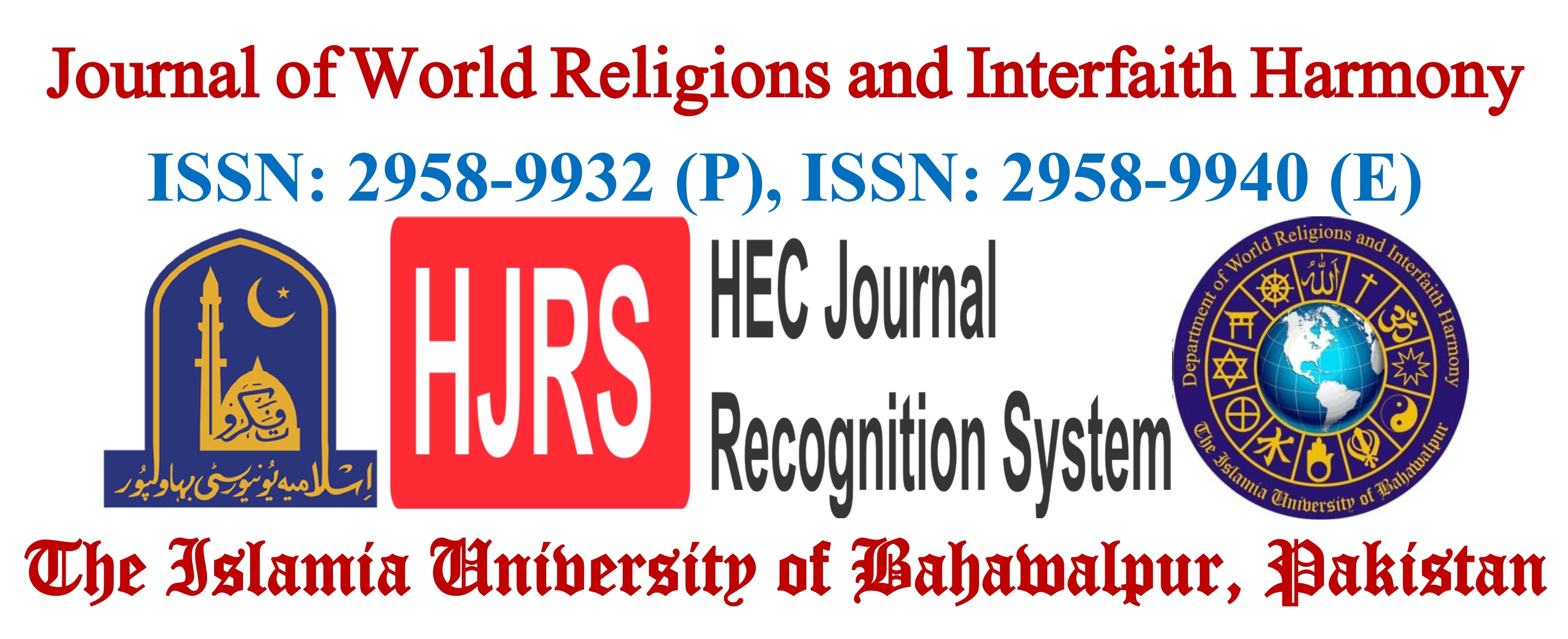Academic Research on Non- Muslim Religious Minorities
Content analysis of the Research papers from a Pakistani Perspective
DOI:
https://doi.org/10.52461/jwrih.v2i1.1733Keywords:
Religious Minorities, Academic Research, Content analysis, Pakistan, Interfaith StudiesAbstract
This study aims to examine research papers on religious minorities to determine their issues, rights, and privileges in Pakistan. In a civilized society, everyone has basic rights regardless of race, color, or religion. Everyone has cultural, political, religious, and constitutional freedom in a peaceful society. In general, it is perceived that, in Pakistan, followers of other religions than Islam are not given their essential rights, especially regarding their religious rights. To secure minority participation in decision-making, they may reserve seats in administration and parliament, organize national and local minority consultative organizations, and provide cultural or territorial autonomy. In the context of Pakistan, the school curriculum and state policies are viewed as the primary causes of prejudice against minorities. However, numerous other elements may contribute to the establishment of attitudes about them. Therefore, in order to reveal and appropriately address the issue, this study will use qualitative research methodology with an analytical research approach. Rights, issues, and problems of minorities have been a matter of concern to various scholars, states, and societies throughout history and in the contemporary era too. The study suggests that there should be made awareness at the grassroots level and the removal of obstacles to the greater good of humanity.
Downloads
Published
How to Cite
Issue
Section
License
Copyright (c) 2023 Riaz Ahmad Saeed, Irfan Saghir, Waqar Ahmad

This work is licensed under a Creative Commons Attribution-NonCommercial 4.0 International License.






